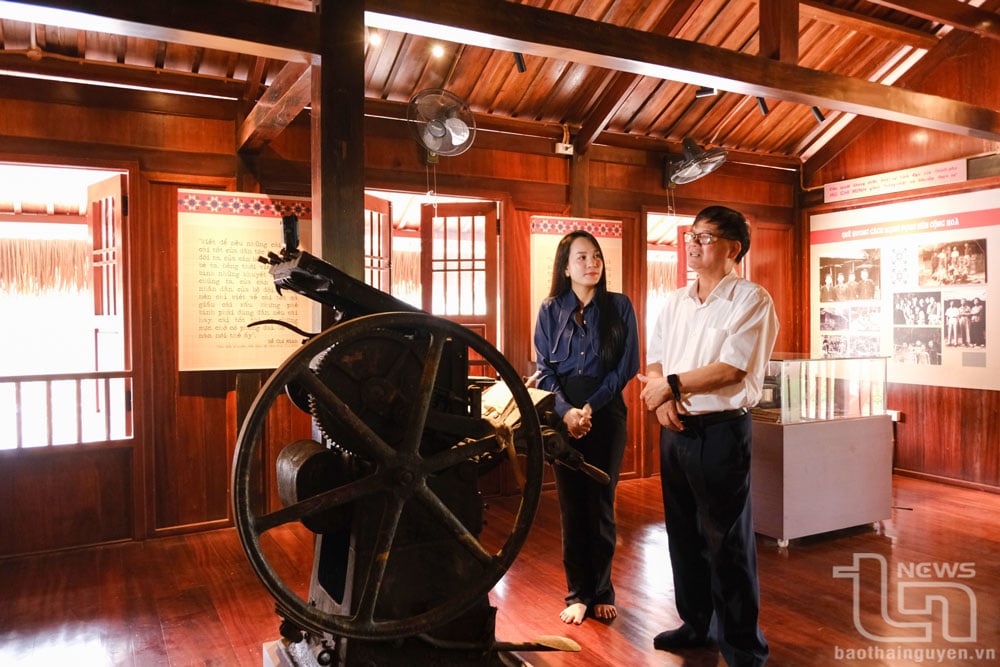 |
| Journalist Phan Huu Minh shares about his journey to make a documentary about Uncle Ho in the war zone. |
For journalist Phan Huu Minh (former Editor-in-Chief of Thai Nguyen Newspaper, former Director of Thai Nguyen Radio and Television Station), documentary films are a combination of historical documents, images and emotions, creating a form of expression rich in depth, long-lasting vitality and sustainable social significance.
He shared: I love making documentaries because it is my way to pay tribute to history, honor people and preserve unrepeatable moments. Because of that love, in his career he has directly produced hundreds of films, many of which have resonated such as: Viet Bac Roads, Southern Land and People, Places with Poetic Imprints, Travelogues According to Vu Xuan's Diary...
Similarly, for journalist Ngoc Linh (Thai Nguyen Radio and Television Station), documentary is the most special genre of journalism - where journalists can tell a long story, delving into the nature of people and events. After many years of experiencing news, reportage, and reflection genres, she realized that the power of documentary lies in the way it is presented: not based on commentary but on images, background noise, on-site sounds, and the characters' own narration.
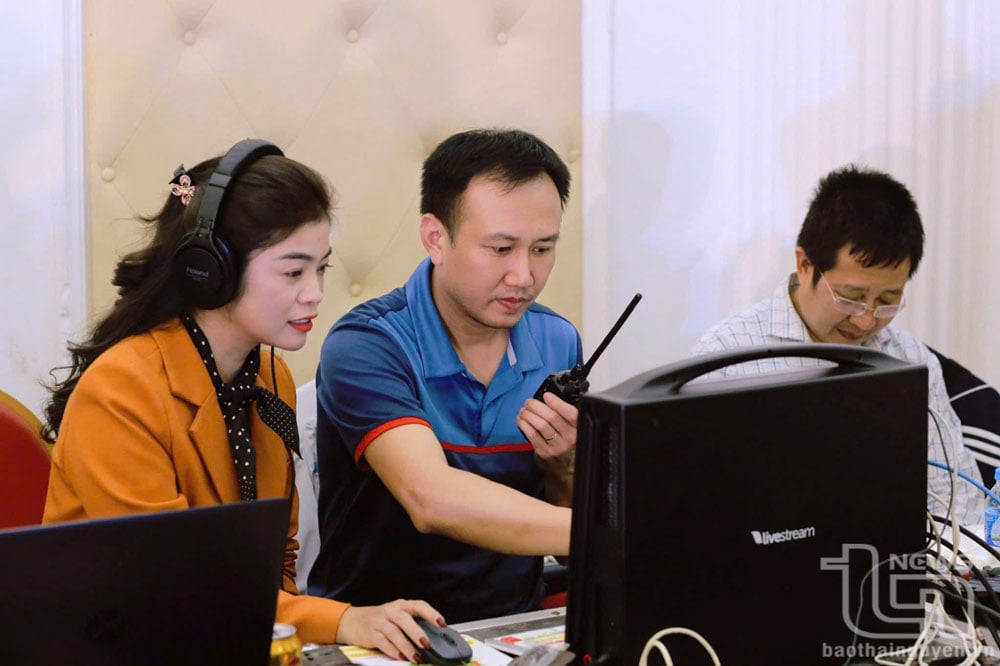 |
| Journalist Ngoc Linh and crew make TV show. |
Journalist Chu The Ha (Deputy Editor-in-Chief of Thai Nguyen Newspaper) sees the role of a documentary filmmaker as no different from that of a custodian of cultural sediments. He asserts: Characters are vital elements. When narrative, materials and reality are woven into a whole, the documentary will have depth. But to do that, the scriptwriter and commentator must have sufficient cultural capital, talent and, above all, passion for the truth.
Journalist Nguyen Ngoc (Thai Nguyen Newspaper) compares documentary filmmakers to “historical storytellers”. For him, documentary is a genre that helps journalists “slow down, delve into hidden corners, and contemplate each layer of time”. The most touching story in his career was when he made the film “At the Two Ends of Victory” on the occasion of the 70th anniversary of the Dien Bien Phu Victory. “When I saw veterans hugging their comrades’ graves in the middle of the old battlefield, I felt more deeply the value of peace and silent sacrifice. Those moments create the irreplaceable depth of documentary films,” he shared.
Behind every film
What makes a documentary film vital is not the special effects or the big budget, but the depth of the content, the authenticity of the emotions and the reliability of the material. Therefore, making a documentary film is a journey that requires patience, delicacy and seriousness in every detail. The biggest challenge is not the editing technique, but how to tell a compelling, touching story while still being objective. Especially with films without commentary - the most difficult genre, journalists must give the stage to the characters and reality to speak.
That is when the filmmaker’s emotions blend into the lens and reach the audience’s hearts, journalist Ngoc Linh affirmed. Films without commentary are even more difficult, because they require deep empathy. The most emotional moment in her career was when making the film “The Story of Three Mute Women”. During more than a month of filming, the crew shed tears many times when witnessing special lives. The film not only won the Silver Prize at the National Television Festival but also left a deep impression on the audience thanks to its genuine, unadorned “mute” moments.
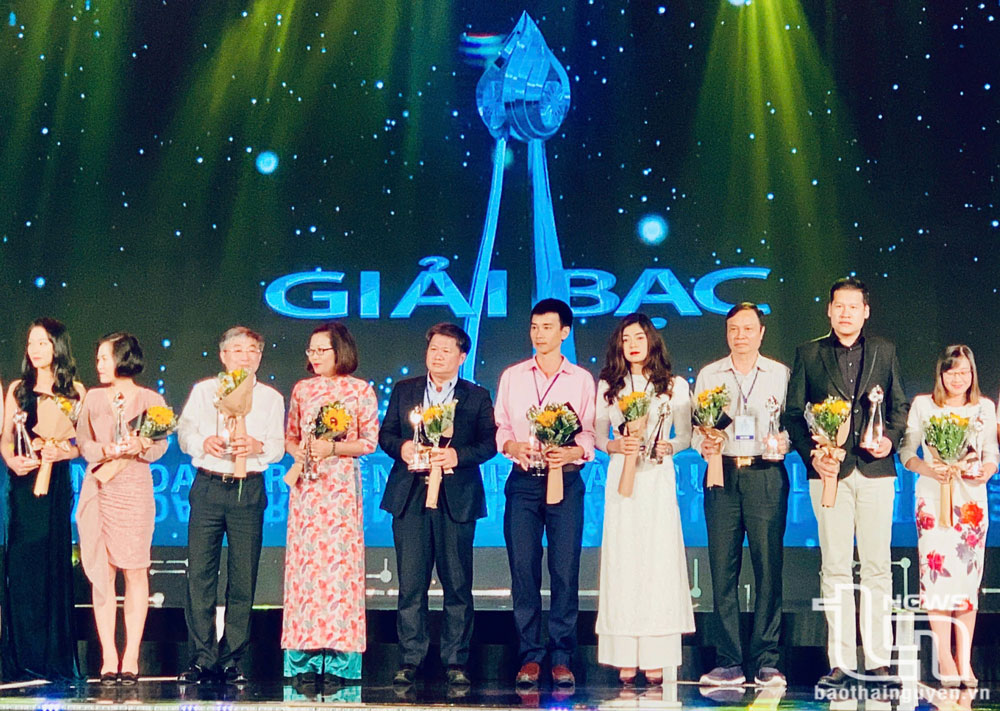 |
| Journalist Ngoc Linh received the Silver Award at the National Television Festival with the documentary "The Story of Three Mute Women". |
From a management perspective, journalist Chu The Ha affirmed: Documentaries are archival and promotional materials. They live longer than the filmmakers. Therefore, every detail in the film must be accurate, every connection of documents must be carefully investigated and compared. For example, the film "Journey according to Vu Xuan's diary" that he participated in producing since 2006, is still regularly broadcast during prime time on many television stations across the country because the weight of information and emotions in the film is of eternal value.
In the context of the press is changing strongly, many professional values are redefined, documentary films still retain their identity: durable, profound and full of emotions. From films depicting human destiny to reports marking old battlefields, Thai Nguyen journalists have been and are "storytellers of time" contributing to building a vivid archive of documents not only for Thai Nguyen but also for the whole beloved S-shaped strip of land.
Putting his trust in the next generation, journalist Phan Huu Minh hopes: For young reporters, the path to documentary filmmaking may not be easy. But if they have enough passion, perseverance and belief in the value of truth, they can completely continue the journey of their predecessors with a fresh perspective, a sensitivity to the times and a heart that is always moved by life. That is not only a professional responsibility, but also a way for today's press to continue to affirm its irreplaceable role as an honest and humane witness to history.
Source: https://baothainguyen.vn/xa-hoi/202506/chung-toi-di-lam-phim-23725a0/


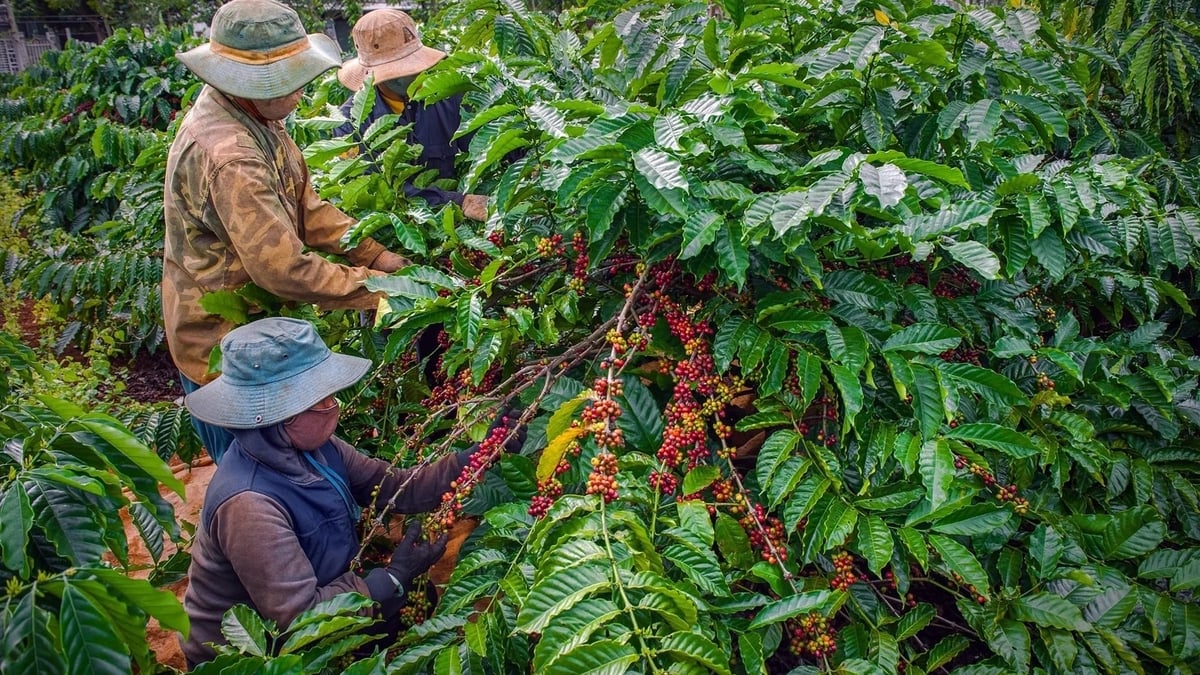


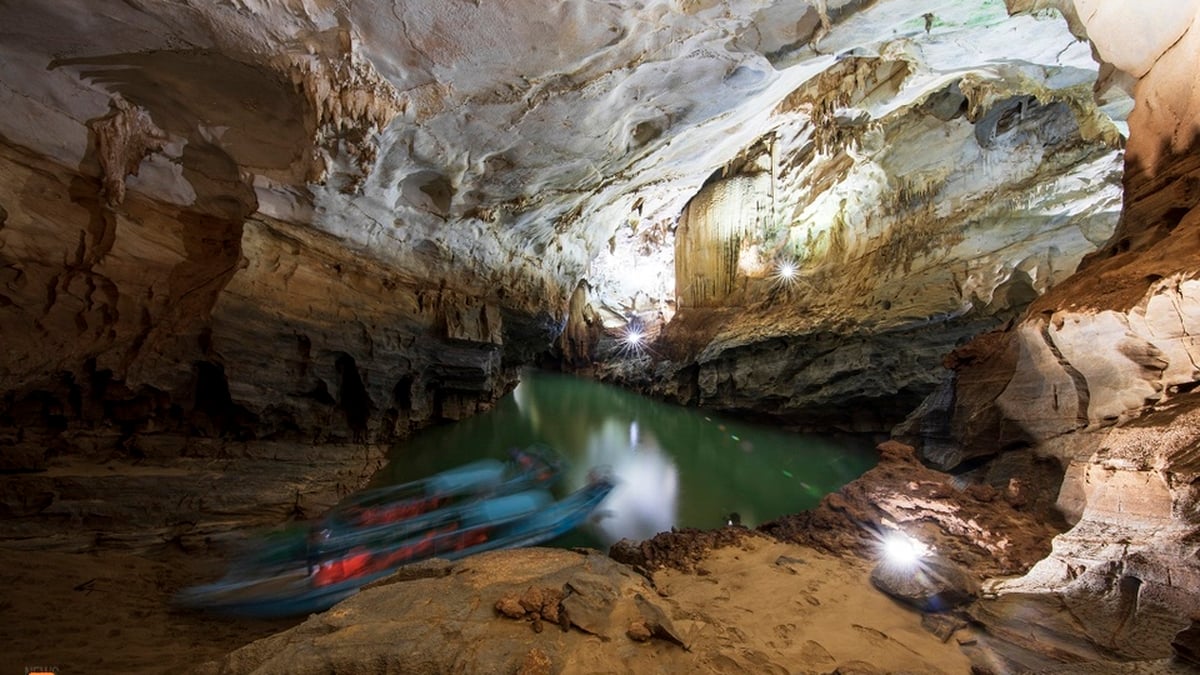
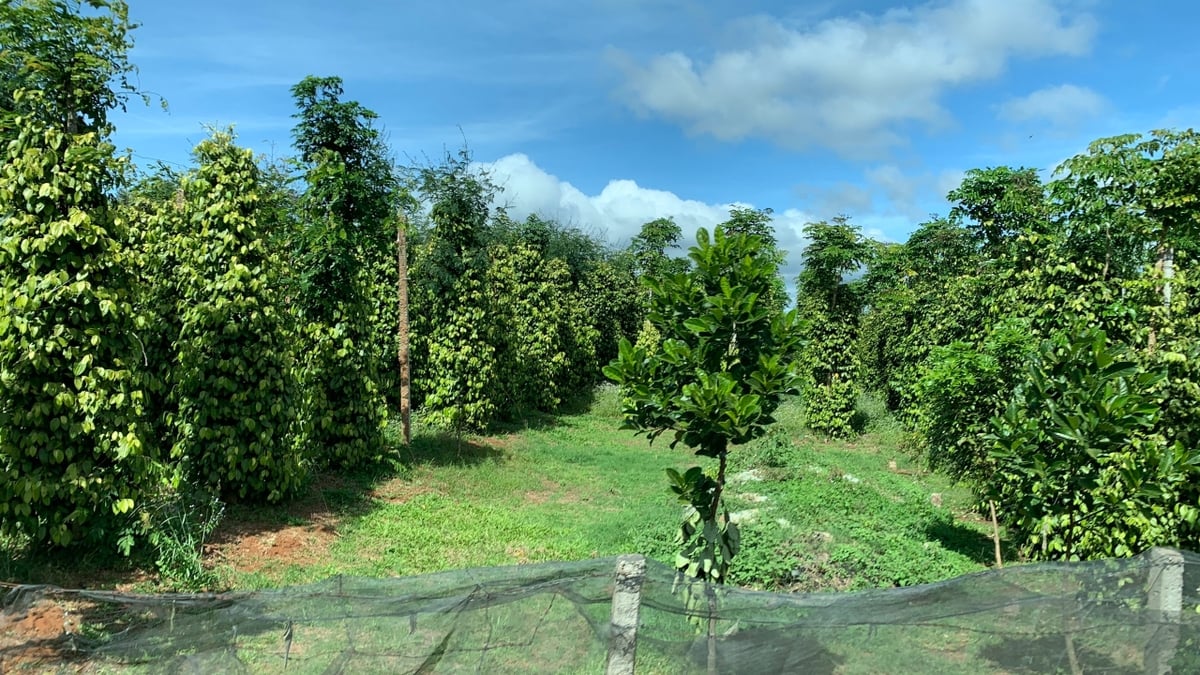
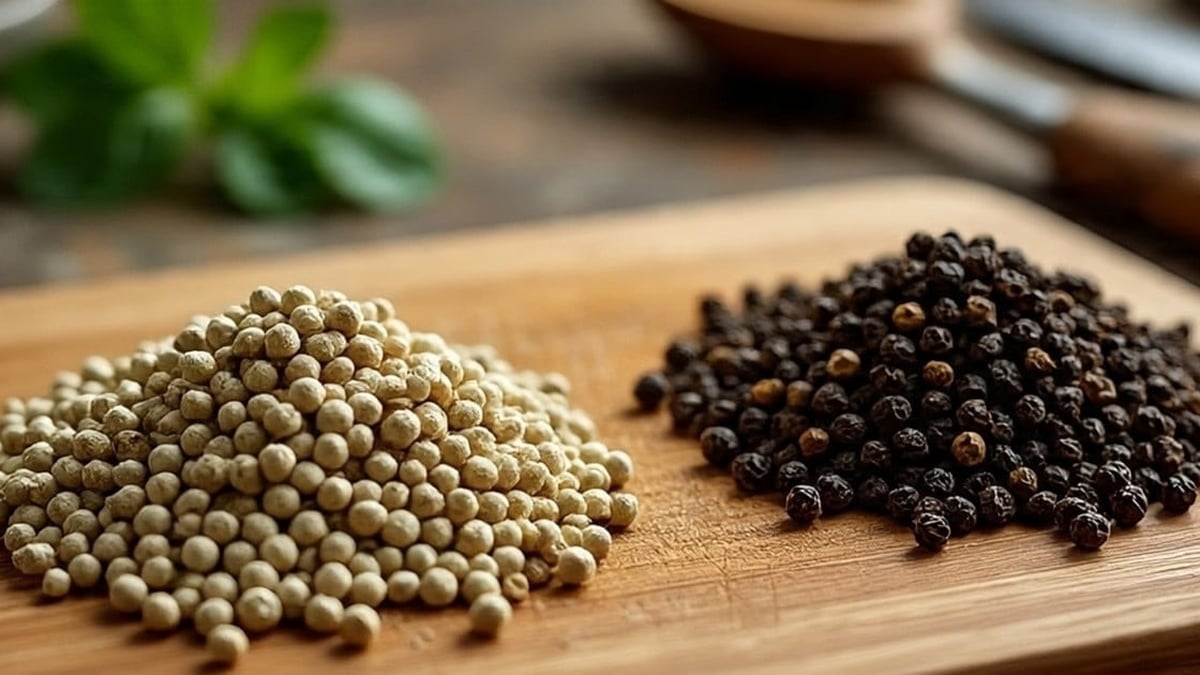
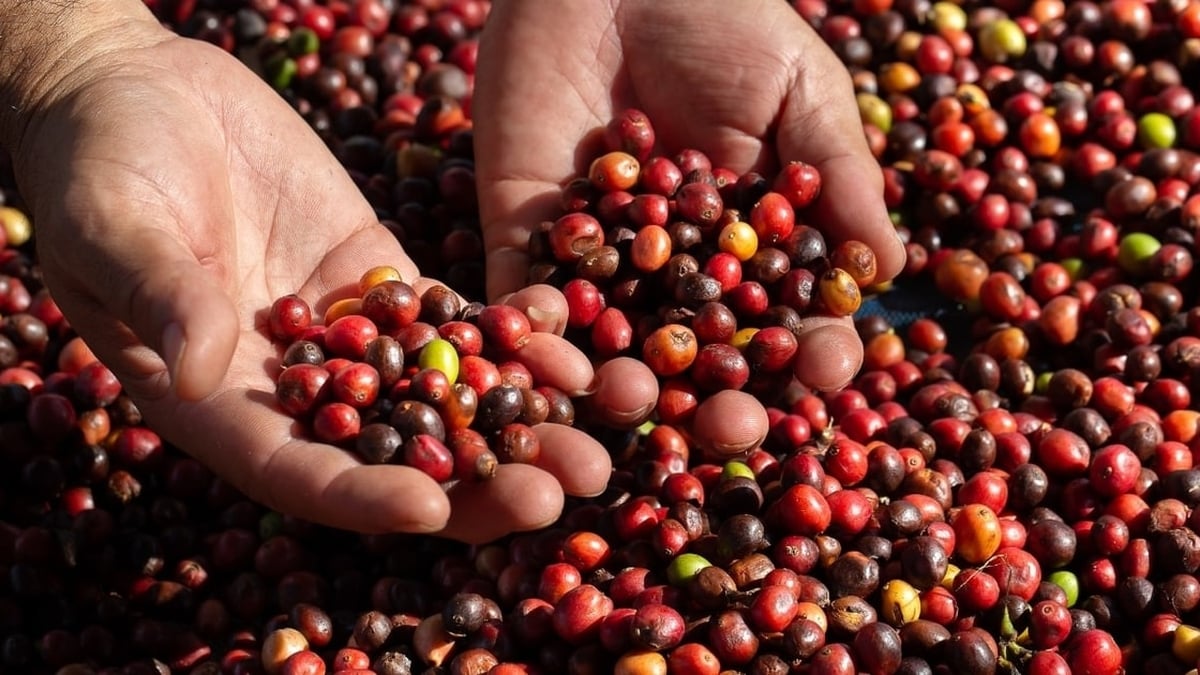


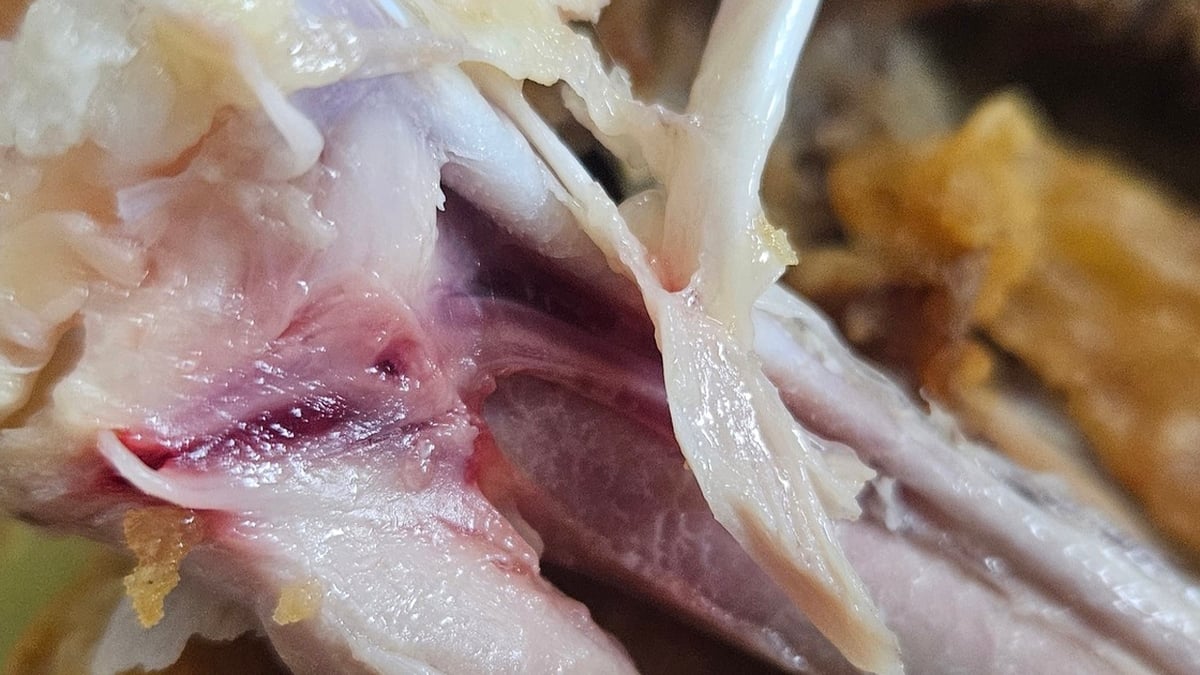










































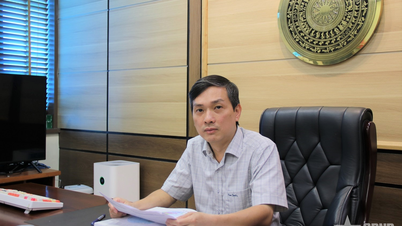








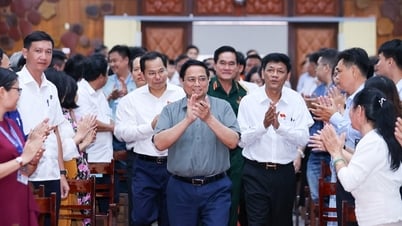


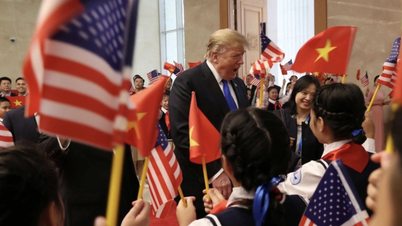

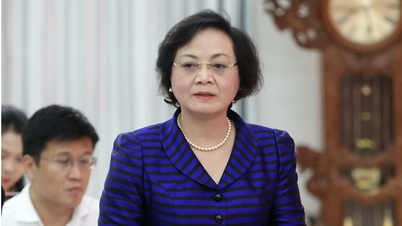
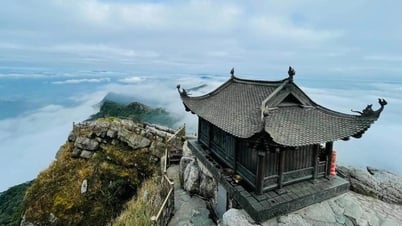
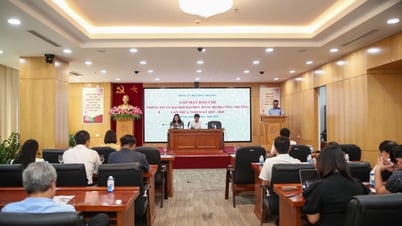

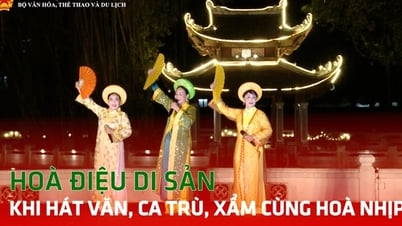

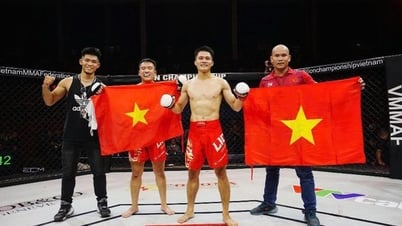
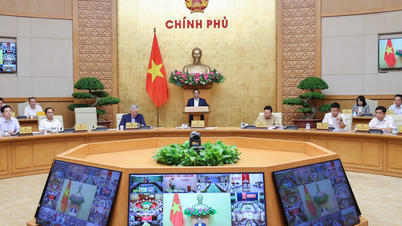

























Comment (0)